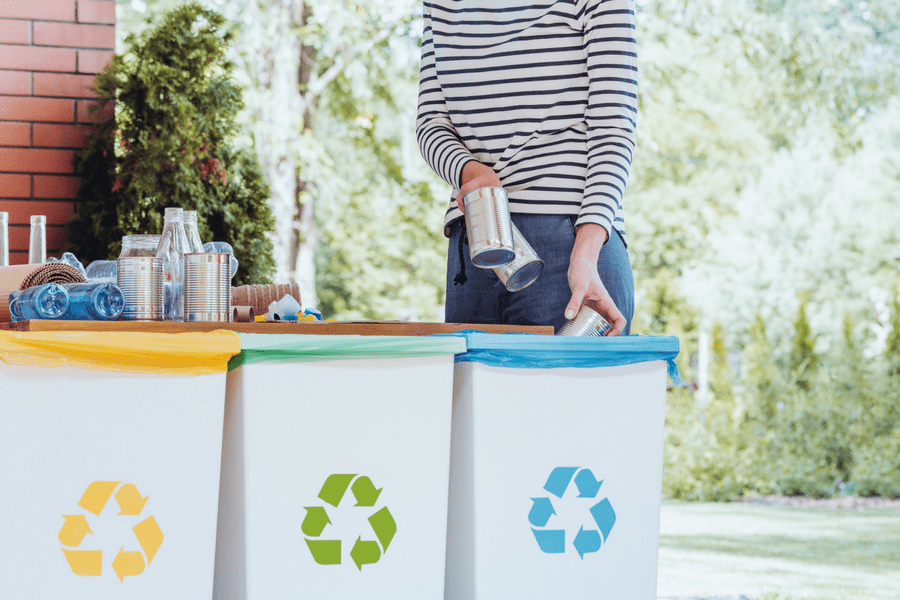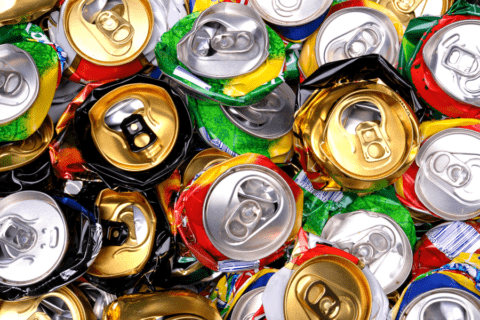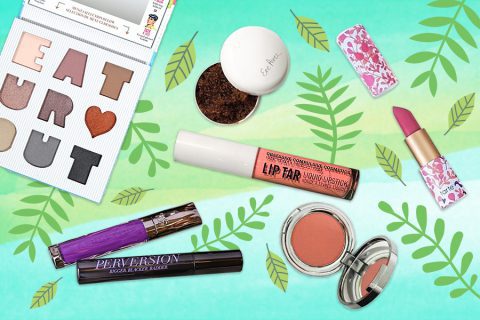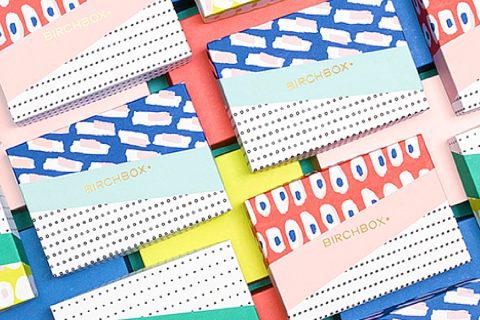A Comprehensive List of What You Should Recycle vs. Throw Away

Chances are you grew up learning about the benefits of recycling, and if you’re like me, had chants like “reuse, reduce, and recycle” hammered into your brain year after year. But, despite most schools and parents’ best efforts, most of us actually know little about recycling. This lack of education on the process of recycling and (especially) what items are recyclable has caused an exceptional amount of extra work and money.
If you want to hear me rant about the injustices of recycling you can check out my article on the 5 Reasons You Should Recycle. In the meantime, here’s a comprehensive list of the goods and products you should and shouldn’t recycle.
What to Recycle
Aluminum cans
According to Waste Management, in the United States we only recycle about half of the aluminium cans that we use each year. So if each person uses one can a day (meaning 365 cans a year) then we’d accumulate about 117 million cans each year—halving that would mean that as a country we’re wasting approximately 58 million aluminium cans each year. That insane amount of waste can be prevented by simply throwing your Coke or Dr. Pepper can in the recycle bin on your lunch break.
Luckily, all aluminum cans are recyclable so you don’t even have to double check before chunking your empty Sprite can in the (historically) little green container.
Tin Cans
If you don’t know this common item (then you’re crazy), some examples would be a can of green beans or corn. Personally, I never thought about the difference between an aluminum can and a tin one but alas there is! If you put a magnet to your unidentified can an aluminium can won’t stick while a steel (or tin) can will—likely for me both can be recycled just as easily.
Interestingly enough, tin cans are the most recycled product in America. So, jump on the bandwagon and toss your cans into the right place next time—just be sure to wash them first.
Paper
Whether it be last month’s Cosmopolitan issue sitting on your couch, the day-old newspaper on your kitchen counter, or all those pages you wasted when you printed your brief in black and white instead of color, virtually all paper can be recycled. Additionally, if you’re a student then you frequently use lined paper, which can also be recycled (hence all the paper recycling bins all over campus).
Recycling your old paper can help generate new paper as well as tissues, paperboard, and toilet paper—you’ll also feel like a hella-good human for helping the Earth.
Cardboard
Think about the sheer amount of cardboard boxes that you, personally, use each year. Cardboard boxes are as common as my chocolate cravings—in fact, I’m staring at four candy bars lying in my room right now. Per Waste Management, recycled cardboard is used to make cereal boxes, paper towels, and writing paper.
Glass
Did you know that different-colored glass is made up of different materials that give it the color? Well, now you do! Clear glass is made of limestone and silica, brown glass contains nickel and sulfur, and green glass gets its color from a mixture of iron and copper. But, regardless of the color, all glass can be recycled—which means all those empty bottles of Rosé can be re-purposed.
Plastic
Everyone knows plastic water bottles can be recycled, but some might not realize there are countless other plastic products that can be just as easily re-used. Plastic wrappers of any kind (like food wrappers or wrappers for practically anything electronic) can also be recycled. It’s important to keep in mind, however, that you should clean (or rinse) all your plastics before putting them into the recycle bin. Food, liquid, or other substances that are left on the plastic can actually make an item unrecyclable (and that’s just a shame).
One last tidbit about plastic is that, contrary to popular belief, tossing your plastic bags into the recycling bin isn’t always a good thing. Plastic bags have to be processed separately because they can get caught in the machines used to break the materials down which causes them to break; so be sure to check and make sure that your area recycling includes plastic bags.
Electronics
Although not something you’d regularly dispose of, recycling electronics such as computers, TV’s, cell phones, and office equipment is completely fine (and even encouraged). Any of these items can be recycled no matter the condition. Office equipment such as printers and photocopiers can be stripped down to its raw materials and used to create new products. So, next time technology lets you down (or you just upgrade your computer or smartphone) be sure to place your electronics in the right bin.
What to Throw Away
Chip Bags
Sadly, the coated inside of chip bags leaves them unable to be recycled. There’s no easy remedy or cleaning process to change this (although I wish there were), so you can toss these items in the trash.
Water Bottle Caps
Possibly the most infuriating and confusing fact that I’ve learned during my research on recycling is that plastic water bottle caps aren’t recyclable. I just can’t wrap my mind around the fact that companies like Ozarka, Life Water, and literally any other water bottle company haven’t figured out a way to make their caps with recyclable material. So, as sad as it is, be sure to twist off your bottle cap before throwing your water bottle in the recycling bin.
Pizza Boxes
Although oddly specific compared to items like paper and plastic cups, we as Americans (and human beings) consume an alarming amount of pizza. Each year more than five billion pizzas are sold around the world—that means around five billion pizza boxes. The reason they’re unrecyclable has to do with the grease and food residue that coats the cardboard. Leftover food isn’t as big of a problem with plastics because their recycling process involves the use of heat, while cardboard and paper is simply mixed with water and other chemicals.
So, if you decide to order a large pizza for yourself and binge watch Gossip Girl this weekend, be sure to place your box in the trash can.
Shredded Paper
When paper is shredded, the paper fibers themselves are shortened. So, while most pieces of whole paper can be reused four to five times, shredded paper is lucky if it can be re-purposed once. While shredded paper can technically be recycled, the difficulty that it causes during sorting makes it largely unfavorable. Do the sorters a solid and dump your paper shreds into the trash can new time.
Follow Anna on Instagram: @annamariedepoyster










Show Comments +